Law Of Correspondence Quotes & Sayings
Enjoy reading and share 5 famous quotes about Law Of Correspondence with everyone.
Top Law Of Correspondence Quotes
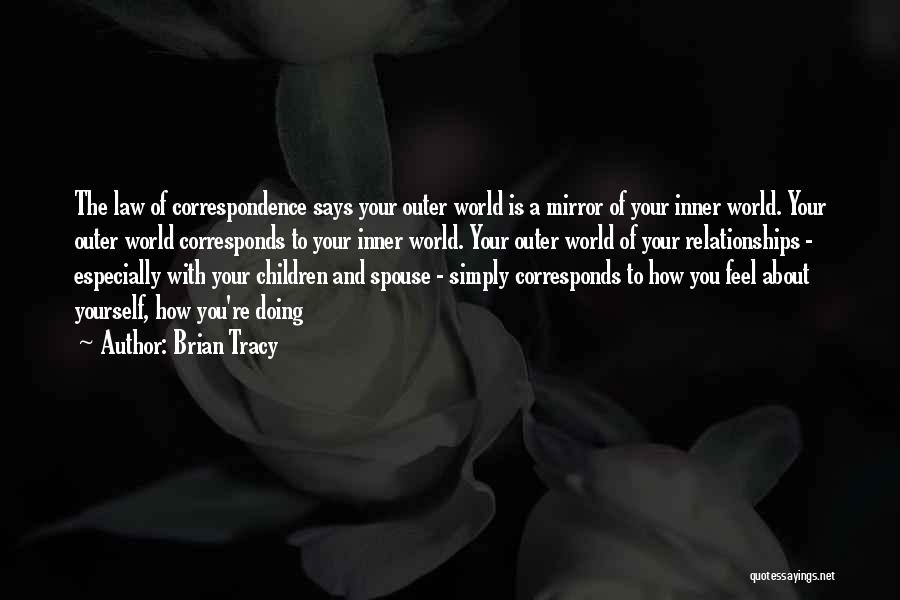
The law of correspondence says your outer world is a mirror of your inner world. Your outer world corresponds to your inner world. Your outer world of your relationships - especially with your children and spouse - simply corresponds to how you feel about yourself, how you're doing — Brian Tracy
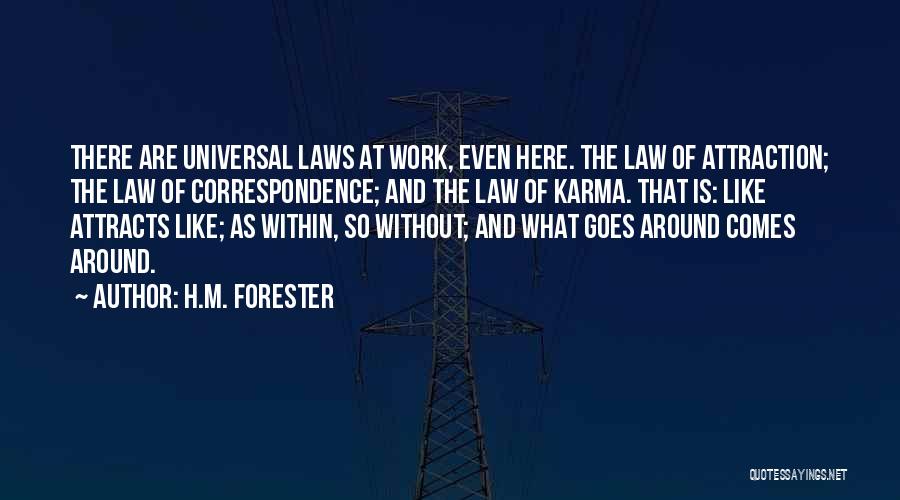
There are universal laws at work, even here. The Law of Attraction; the Law of Correspondence; and the Law of Karma. That is: like attracts like; as within, so without; and what goes around comes around. — H.M. Forester
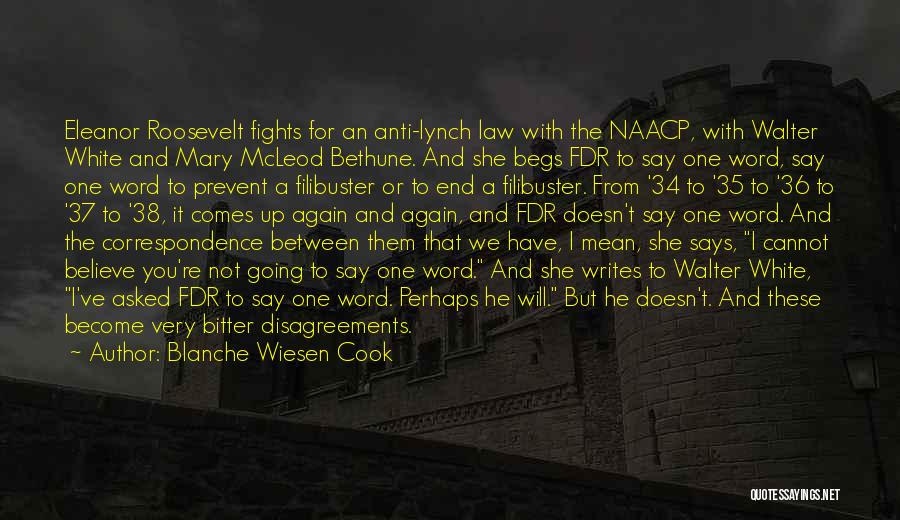
Eleanor Roosevelt fights for an anti-lynch law with the NAACP, with Walter White and Mary McLeod Bethune. And she begs FDR to say one word, say one word to prevent a filibuster or to end a filibuster. From '34 to '35 to '36 to '37 to '38, it comes up again and again, and FDR doesn't say one word. And the correspondence between them that we have, I mean, she says, "I cannot believe you're not going to say one word." And she writes to Walter White, "I've asked FDR to say one word. Perhaps he will." But he doesn't. And these become very bitter disagreements. — Blanche Wiesen Cook
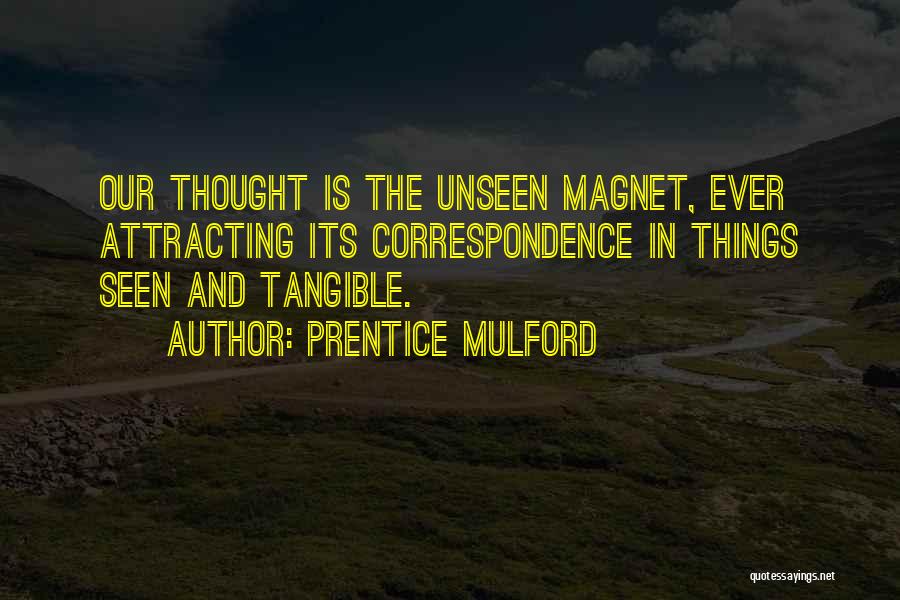
Our thought is the unseen magnet, ever attracting its correspondence in things seen and tangible. — Prentice Mulford
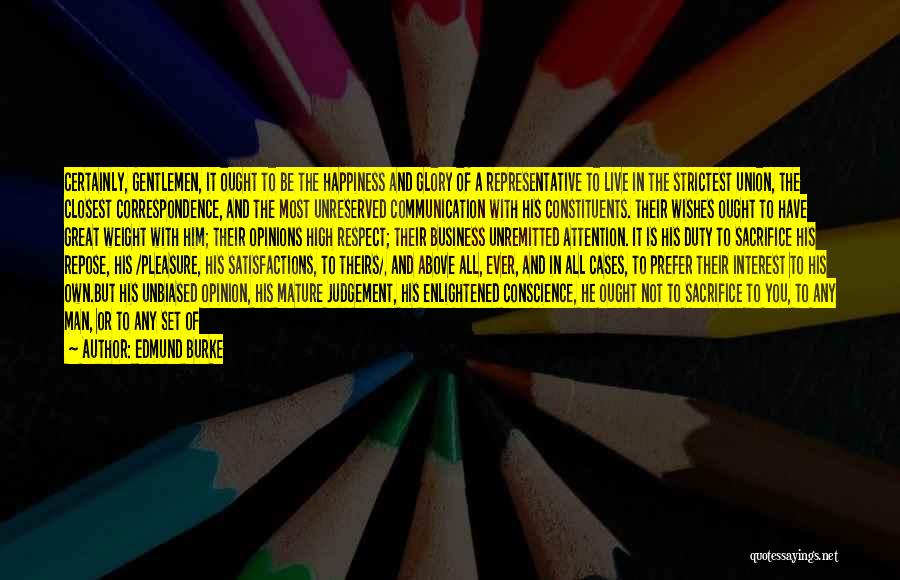
Certainly, Gentlemen, it ought to be the happiness and glory of a representative to live in the strictest union, the closest correspondence, and the most unreserved communication with his constituents. Their wishes ought to have great weight with him; their opinions high respect; their business unremitted attention. It is his duty to sacrifice his repose, his /pleasure, his satisfactions, to theirs/,
and above all, ever, and in all cases, to prefer their interest to his own.
But his unbiased opinion, his mature judgement, his enlightened conscience, he ought not to sacrifice to you, to any man, or to any set of men living. These he does not derive from your pleasure,
no, nor from the law and the Constitution. They are a trust from Providence, for the abuse of which he is deeply answerable. Your Representative owes you, not his industry only, but his judgement; and he betrays, instead of serving you, if he sacrifices it to your opinions. — Edmund Burke





